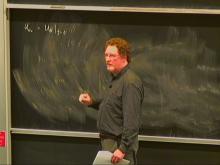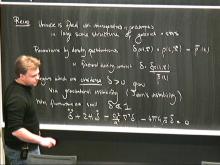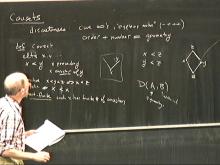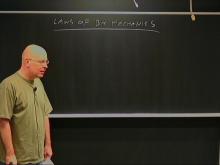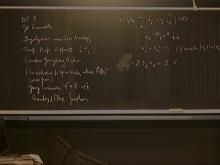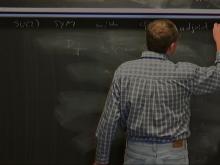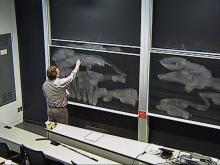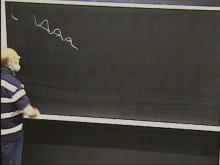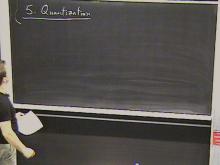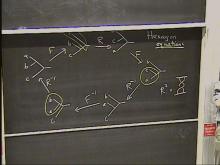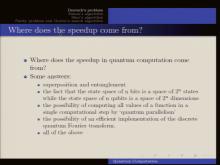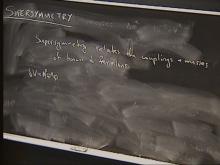Format results
-
10 talksCollection NumberC08007
Talk
-

-

-

-

-

Symmetry Principles in Physics - Lecture 4A
-
Michele Arzano University of Naples Federico II
-
Harvey Brown University of Oxford
PIRSA:08050008 -
-

-

-

-
-
New Horizons In Fundamental Physics
23 talksCollection NumberC08001Talk
-

-

-

-

-

String Theory #1
Xiao Liu University of Electronic Science and Technology of China
-

-

-

-
-
Special Topics in Physics
27 talksCollection NumberC08003Talk
-

Special Topics in Physics - Lecture 1
Lee Smolin Perimeter Institute for Theoretical Physics
PIRSA:08010033 -

Special Topics in Physics - Lecture 2A
Lee Smolin Perimeter Institute for Theoretical Physics
PIRSA:08010034 -

Special Topics in Physics - Lecture 2B
Lee Smolin Perimeter Institute for Theoretical Physics
PIRSA:08010040 -

Special Topics in Physics - Lecture 3A
Lee Smolin Perimeter Institute for Theoretical Physics
PIRSA:08010035 -

Special Topics in Physics - Lecture 3B
Lee Smolin Perimeter Institute for Theoretical Physics
PIRSA:08010041 -

Special Topics in Physics - Lecture 4A
Lee Smolin Perimeter Institute for Theoretical Physics
PIRSA:08010036 -

Special Topics in Physics - Lecture 5A
Lee Smolin Perimeter Institute for Theoretical Physics
PIRSA:08020024 -

Special Topics in Physics - Lecture 5B
Lee Smolin Perimeter Institute for Theoretical Physics
PIRSA:08020029
-
-
Advanced General Relativity
24 talksCollection NumberC08002Talk
-
Spontaneous Broken Symmetry
9 talksCollection NumberC07020Talk
-
Introduction to Supersymmetry
24 talksCollection NumberC07019Talk
-
Advanced Topics in Cosmology mini-course 2007
14 talks-Collection NumberC07007Talk
-

Advanced Topics in Cosmology
Viatcheslav Mukhanov Ludwig-Maximilians-Universität München (LMU)
PIRSA:07040023 -

Advanced Topics in Cosmology 1B
Viatcheslav Mukhanov Ludwig-Maximilians-Universität München (LMU)
PIRSA:07040026 -

Advanced Topics in Cosmology
Viatcheslav Mukhanov Ludwig-Maximilians-Universität München (LMU)
PIRSA:07040024 -

Advanced Topics in Cosmology 2B
Viatcheslav Mukhanov Ludwig-Maximilians-Universität München (LMU)
PIRSA:07040027 -

Advanced Topics in Cosmology
Viatcheslav Mukhanov Ludwig-Maximilians-Universität München (LMU)
PIRSA:07050009 -

Advanced Topics in Cosmology 3B
Viatcheslav Mukhanov Ludwig-Maximilians-Universität München (LMU)
PIRSA:07050014 -

Advanced Topics in Cosmology
Viatcheslav Mukhanov Ludwig-Maximilians-Universität München (LMU)
PIRSA:07050010 -

Advanced Topics in Cosmology 4B
Viatcheslav Mukhanov Ludwig-Maximilians-Universität München (LMU)
PIRSA:07050015
-
-
Black Holes and Holography: Mini-Course - 2007
8 talks-Collection NumberC07003Talk
-

Black Hole & Holography - Class 1
Leonard Susskind Stanford University
-

Black Holes and Holography: Mini-Course - Lecture 2
Leonard Susskind Stanford University
PIRSA:07030029 -

Black Holes and Holography: Mini-Course - Lecture 3
Leonard Susskind Stanford University
-

Black Holes and Holography: Mini-Course - Lecture 4
Leonard Susskind Stanford University
-

Black Holes and Holography: Mini-Course - Lecture 5
Leonard Susskind Stanford University
-

Black Holes and Holography: Mini-Course - Lecture 5
Leonard Susskind Stanford University
-

Black Holes & Holography - Class 7
Leonard Susskind Stanford University
-

Black Holes & Holography - Class 8
Leonard Susskind Stanford University
-
-
Introduction to Quantum Groups 1 - 2007
5 talks-Collection NumberC07002Talk
-

Introduction to quantum groups 1
Florian Koch Ludwig-Maximilians-Universität München (LMU)
PIRSA:07010027 -

Introduction to quantum groups 2
Florian Koch Ludwig-Maximilians-Universität München (LMU)
PIRSA:07010028 -

Introduction to quantum groups 3
Florian Koch Ludwig-Maximilians-Universität München (LMU)
PIRSA:07010029 -

Introduction to quantum groups 4
Florian Koch Ludwig-Maximilians-Universität München (LMU)
PIRSA:07010030 -

Introduction to quantum groups 5
Florian Koch Ludwig-Maximilians-Universität München (LMU)
PIRSA:07010031
-
-
Quantum Error Correction Course 2007
24 talks-Collection NumberC07001Talk
-
Introduction to Quantum Information and Computation from a Foundational Standpoint
4 talks-Collection NumberC06014Talk
-

Introduction to Quantum Information and Computation from a Foundational Standpoint
Jeffrey Bub University of Maryland, College Park
PIRSA:06110033 -

Introduction to Quantum Information and Computation from a Foundational Standpoint
Jeffrey Bub University of Maryland, College Park
PIRSA:06110034 -

Introduction to Quantum Information and Computation from a Foundational Standpoint
Jeffrey Bub University of Maryland, College Park
PIRSA:06110042 -

Introduction to Quantum Information and Computation from a Foundational Standpoint
Jeffrey Bub University of Maryland, College Park
PIRSA:06120048
-
-
Graduate Course on the Standard Model and Quantum Field Theory - 2006/2007
34 talks-Collection NumberC06012Talk
-

Graduate Course on Standard Model & Quantum Field Theory - 1A
Cliff Burgess McMaster University
PIRSA:06100025 -

Graduate Course on Standard Model & Quantum Field Theory - 2B
Cliff Burgess McMaster University
PIRSA:06100028 -

Graduate Course on Standard Model & Quantum Field Theory - 2A (Part 1)
Cliff Burgess McMaster University
PIRSA:06100027 -

Graduate Course on Standard Model & Quantum Field Theory - 2A (Part 2)
Cliff Burgess McMaster University
PIRSA:06100029 -

-

Graduate Course on Standard Model & Quantum Field Theory - 3A
Cliff Burgess McMaster University
PIRSA:06110023 -

Graduate Course on Standard Model & Quantum Field Theory - 4A
Cliff Burgess McMaster University
PIRSA:06110025 -

Graduate Course on Standard Model & Quantum Field Theory - 4B
Cliff Burgess McMaster University
PIRSA:06110026
-
-
Symmetry Principles in Physics: Variations on a Theme
10 talksCollection NumberC08007These lectures will cover a number of topics related to the role of symmetry principles in physics. After introducing some basic definitions and distinctions, we will look at the changing role of the relativity principle from Galileo to Einstein (in special and general relativity). In particular we raise doubts as to the wisdom of treating Einstein's 1905 route to special relativity based on the relativity principle as a template for a fundamental reformulation of quantum theory, as some have recently proposed. We then examine the nature and meaning of Noether's 1918 theorems for global and local symmetries, and discuss some recent applications of Noether's "first" theorem in quantum mechanics and electromagnetism. We finish with two case studies: (i) the Galilean (boost) symmetry of quantum mechanics, and (ii) the problem of the arrow of time in statistical mechanics based on time-reversal invariant dynamics. Each lecture will be followed by a period for discussion. -
New Horizons In Fundamental Physics
23 talksCollection NumberC08001This course is an introduction to some of the most exciting ideas in fundamental physics. The topics are chosen to represent areas of research currently conducted at Perimeter Institute. Each topic will be discussed for one or two weeks and will be lectured by a leading young researcher in each field. From deep conceptual issues on the meaning of quantum theory, passing through very sophisticated theories like string theory and loop quantum gravity all the way to cosmology and quantum information theory, this course is a challenging intellectual adventure. -
Special Topics in Physics
27 talksCollection NumberC08003This course will provide an introduction to current research on the problem of time in quantum gravity and cosmology. This is one of the key problems that any successful quantum theory of gravity must solve. Different approaches to quantum gravity assume different answers to fundamental questions such as whether time is emergent or not, whether causality is emergent or not, and what is an observable in a theory of gravity. These problems have aspects which are technical as well as conceptual and philosophical aspects and we will discuss them all as well as their inter-relations. The course will begin with an introduction to the canonical formulation of general relativity and related dynamical systems. We will then study the standard material on the Hamiltonian quantization of general relativity and related time reparametrization invariant systems. This gives us the technical setting in which the problem of time is usually encountered in the contemporary literature on quantum gravity and quantum cosmology. Following this physical introduction we will read the key texts from the history of physics and philosophy concerning the meaning of time, such as Newton, Leibniz, Mach, Einstein etc. This will be followed by readings of papers and books from contemporary sources on this issue by physicists and philosophers. We will focus on two opposite views, the idea that time is emergent in quantum cosmology and the opposing idea that time is fundamental and is perhaps the only aspect of our macroscopic reality that is not emergent. -
Advanced General Relativity
24 talksCollection NumberC08002Classes will meet on Wednesdays at the Perimeter Institute for Theoretical Physics, starting on January 9, 2008. The first class meeting is from 10:30 am to 12:00 pm in the Bob Room. The second class meeting is from 4:00 pm to 5:30 pm in the Alice Room. -
Spontaneous Broken Symmetry
9 talksCollection NumberC07020A series of 8 lectures, 2 hours each on Spontaneous Broken Symmetry. -
Introduction to Supersymmetry
24 talksCollection NumberC07019Alex Buchel gives an introduction to supersymmetry. -
Advanced Topics in Cosmology mini-course 2007
14 talks-Collection NumberC07007Advanced Topics in Cosmology mini-course 2007 with Slava Mukhanov -
Black Holes and Holography: Mini-Course - 2007
8 talks-Collection NumberC07003Black Holes and Holography: Mini-Course with Lenny Susskind -
Introduction to Quantum Groups 1 - 2007
5 talks-Collection NumberC07002From Quantum Mechanics to Quantum Groups The notion of 'quantization' commonly used in textbooks of quantum mechanics has to be specified in order to turn it into a defined mathematical operation. We discuss that on the trails of Weyl's phase space deformation, i.e. we introduce the Weyl-Moyal starproduct and the deformation of Poisson-manifolds. Generalizing from this, we understand, why Hopf-algebras are the most genuine way to apply 'quantization' to various other algebraic objects - and why this has direct physical applications. -
Quantum Error Correction Course 2007
24 talks-Collection NumberC07001An in-depth introduction to quantum error correction, fault-tolerant quantum computing, and related topics. Covers stabilizer codes, CSS codes, higher-dimensional codes, specific code constructions, entanglement purification protocols, and quantum channel capacity. Also bounds on quantum error correction: quantum Hamming bound, quantum Singleton bound, linear programming bounds and the quantum MacWilliams identity; and principles of fault-tolerant quantum computation: fault-tolerant error measurement, fault-tolerant gate design, the threshold for fault-tolerant quantum computation, and topological fault-tolerance. -
Introduction to Quantum Information and Computation from a Foundational Standpoint
4 talks-Collection NumberC06014Graduate Course on the Standard Model and Quantum Field Theory -
Graduate Course on the Standard Model and Quantum Field Theory - 2006/2007
34 talks-Collection NumberC06012Graduate Course on the Standard Model and Quantum Field Theory
